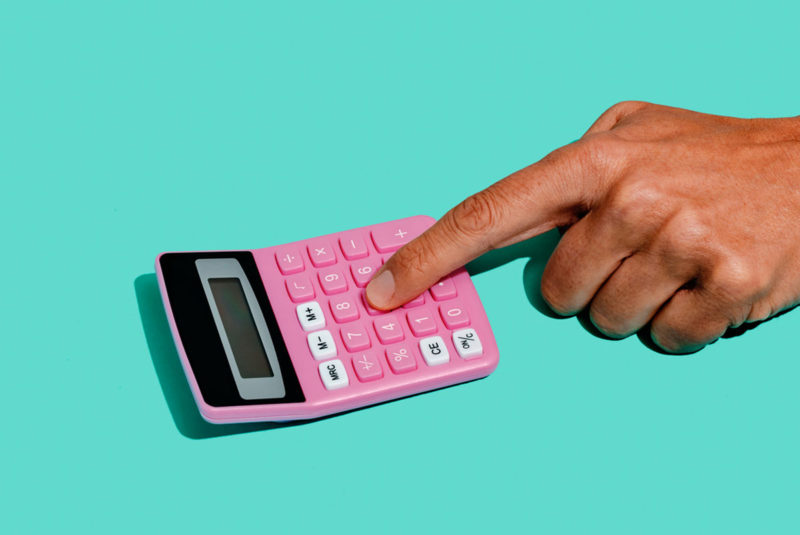Did you know that you have the right to free credit reports every year?
Thanks to the Fair Credit Reporting Act (FCRA), you can request one free credit report per year from each of the three major credit bureaus: Equifax®, Experian™, and TransUnion®. This is an important ability for consumers, giving you a free way to check and maintain the accuracy of your credit reports.
How To Claim Your Free Annual Credit Reports
Your credit reports contain personal information, along with financial details like your credit accounts (open and closed), the recent balances and credit limits of your credit cards, and your payment history.
Getting your free credit reports every year is easy.
There’s only one official source, authorized by federal law and sponsored by the three major bureaus: AnnualCreditReport.com. This website will not ask you to pay for your credit reports, although you may see ads for paid credit monitoring services. If you’re being asked to pay to see your reports you may have accidentally went to an imposter website instead.
It’s easiest to request your credit reports online, but there are three different methods you can use:
- Online: https://www.annualcreditreport.com
- By phone: 1-877-322-8228
- By mail: Fill out and mail the Annual Credit Report Request Form
When you visit MoneyTips, we want you to know that you can trust what’s in front of you. We are an authoritative source of accurate and relevant financial guidance. When MoneyTips content contains a link to partner or sponsor affiliated content, we’ll clearly indicate where that happens. Any opinions, analyses, reviews or recommendations expressed in our content are of the author alone, and have not been reviewed, approved or otherwise endorsed by the advertiser.
We make every effort to provide up-to-date information; however, we do not guarantee the accuracy of the information presented. Consumers should verify terms and conditions with the institution providing the products. Some articles may contain sponsored content, content about affiliated entities or content about clients in the network. While reasonable efforts are made to maintain accurate information, the information is presented without warranty.
We recommend using certified mail if you send in a request so you can be sure the bureau receives your letter.
You’ll need to provide your name, date of birth, address, and Social Security number. For your security, when making a request online, you’ll also need to provide some additional information based on the data in your credit reports. You cannot use your Individual Taxpayer Identification Number (ITIN) in place of your SSN.
If you make the request online, you should receive your report(s) almost immediately. If you make a request by phone, your report(s) should be mailed to you within 15 days. And for requests by mail, you should receive your report(s) within 15 days of receipt.
If you have any trouble with this process, you can call the phone number above for help.
You can request all three of your credit reports at once, or you can request just one or two. If you’re planning to monitor your credit by keeping tabs on your credit reports, we suggest staggering your requests throughout the year: one every four months. That will give you a chance to periodically review your credit in case anything changes.
Here’s a sample schedule you can use:
| Annual Credit Report Monitoring Schedule | Credit Bureau |
| January 1 | Equifax® |
| May 1 | Experian™ |
| September 1 | TransUnion® |
You may also be eligible to get free credit reports through other methods. And you can always pay $11.50 for a copy of any one of your credit reports.
Take note that since we’re dealing with three different credit bureaus, and three different credit reports, the information in those reports won’t necessarily be identical. Something could change with your Equifax® report, for example, but not your other reports; and if you don’t check your Equifax® report specifically, you won’t notice the change. Sometimes the differences between reports are minor, like slight account name variations, or sometimes they can be significant, like fraudulent accounts appearing on one report but not others.
Other Ways To Get Free Credit Reports
You also have the right to get free credit reports under certain circumstances, thanks again to the FCRA and other legislation.
The following situations allow you to get free credit reports in addition to the three free annual credit reports you can get from AnnualCreditReport.com.
- Adverse actions: After a lender takes an adverse action against you based on your credit, you have 60 days to request a free copy of the credit report used in the decision.
- Fraud/inaccuracies: You can request a free copy of any credit report that you believe contains fraudulent information, or if you’ve placed fraud alerts on your reports.
- Unemployment: You can request free copies of your credit reports if you’re unemployed and you plan to seek employment within 60 days of the request (once per 12 months).
- Public welfare assistance: If you’re on public welfare assistance you can request free copies of your credit reports (once per 12 months).
- State/territory benefit: Residents of certain states and Puerto Rico can request additional free copies of their credit reports each year (certain states and territories get discounted reports as well).
You can use the following links to apply for free credit reports for any of the above situations. Each credit bureau has methods for requesting these types of free reports. Equifax® and TransUnion® make it easy, but Experian™ makes it hard in some cases.
| Credit Bureau | Information | Online | Phone | |
| Equifax® | Information Page | Free Report Request | 1-800- 685-1111 (7:30 a.m. – 1:30 a.m. EST) | Equifax Disclosure Department P.O. Box 740241 Atlanta, GA 30374 |
| Experian™ | Adverse Action Free Report Request Fraud Free Report Request | 1-888-397-3742 | Experian National Consumer Assistance Center P.O. Box 2002 Allen, TX 75013 | |
| TransUnion® | Information Page | Free Report Request | 1-800-888-4213 | Free Report Mail Request Form TransUnion LLC P.O. Box 1000 Chester, PA 19016 |
Equifax® and TransUnion® allow you to easily submit requests for any situation using the application forms in the “Online” column. If you use one of these forms, be sure to check the appropriate box for your situation.
But Experian™ only has online services for adverse actions and fraud; if you want to request a free Experian™ report due to unemployment or welfare, you’ll need to mail your request. Experian™ requests due to state or territory benefits can be made by mail or by phone, because the system should identify your residence.
Take note, although Equifax® allows you to submit requests online, when you do so you’ll be agreeing to mandatory arbitration for any disputes that arise. If you wish to avoid this, you can mail your requests instead.
Any requests sent by mail should include:
- Name
- Date of birth
- Phone number
- Social Security number
- Current and previous addresses from the last two years
- Current employer
- Identity verification (like a copy of your driver’s license)
- Address verification (like a copy of your utility bill)
- Signature
Additional information will be required for specific types of requests, as described below.
Now, here’s everything you need to know about accessing your free credit reports in each situation.
Adverse actions
If a lender takes an adverse action against you that uses your credit as the basis of the decision, you have the right to see the credit report that was used for free. This only provides access to a single report; if your Experian™ credit report was used, for example, that’s the only one you can access in this way.
After being notified of an adverse action, you have 60 days to request your free credit report.
You’re given this free copy of your credit report because you have the right to see why lenders take adverse actions against you. Lenders must disclose the credit report and credit score used in the decision, along with the key factors affecting your credit score.
Some examples of adverse actions include:
- Being denied for a new credit card
- Having your interest rates increased
- Having your credit limit reduced
- Having your credit card account suspended or closed
Fraud and inaccuracies
You can request a free copy of any credit report that you believe contains inaccurate information as a result of fraud or identity theft. You can get one free copy of any affected credit report per year this way.
In addition to that, if you place fraud alerts on your credit reports you’re automatically entitled to free copies of them. Since fraud alerts are always placed on all three of your credit reports at the same time, this gives you the ability to check each report.
Initial fraud alerts and active duty alerts, which last for one year, will entitle you to one set of free credit reports from the three bureaus within the next 12 months. Extended fraud alerts, which last for seven years, will entitle you to two sets of free credit reports from the three bureaus within the next 12 months.
Unemployment
If you are unemployed and you plan to seek employment within the next 60 days, you’re entitled to a free copy of each of your credit reports. You can make an unemployment request for each of your credit reports once every 12 months.
In your unemployment request, whether it’s online, by phone, or by mail, be sure to include the following information:
- Company you worked for last
- Company’s address
- Company’s phone number
Public welfare assistance
You’re entitled to free copies of your credit reports if you receive public welfare assistance. You can make a public welfare request for each of your credit reports once every 12 months.
Include the following information in your public welfare request:
- Welfare office you’re registered with
- Name of case worker
- Phone number of case worker
State/territory benefit
Some states and U.S. territories have specific legislation giving residents the right to additional free copies of their credit reports, other than the free copies guaranteed by federal law from AnnualCreditReport.com.
The states and territories that provide free credit reports are: CO, GA, ME, MD, MA, NJ, PR, and VT.
Some of these states and territories provide just one set of free credit reports from the three bureaus. Others provide as many free credit reports as you’d like. There are also different time frames, depending on the state; some go by the calendar year, others go by 12-month periods, and others have no time restrictions.
Certain states and territories provide discounted copies of your credit reports as well. And you can always pay full price — $11.50 — for any one of your credit reports.
For TransUnion® requests, you’ll need to specify the state or territory you live in manually. Equifax® and Experian™ will use your residence to determine your eligibility.
| State/Territory | First Copy | Additional Copies | Time Frame |
| California | $8.00 | $8.00 | Any time |
| Colorado | Free | $8.00 | Calendar year |
| Connecticut | $5.00 | $7.50 | 12-month period |
| Georgia | Free | Free | Any time |
| Maine | Free | $5.00 | 12-month period |
| Maryland | Free | $5.00 | 12-month period |
| Massachusetts | Free | $8.00 | Calendar year |
| Minnesota | $3.00 | $3.00 | Any time |
| Montana | $8.50 | $8.50 | Any time |
| New Jersey | Free | $8.00 | 12-month period |
| Puerto Rico | Free | $11.50 | Calendar year |
| U.S. Virgin Islands | $1.00 | $1.00 | Any time |
| Vermont | Free | $7.50 | 12-month period |
| All other states | $11.50 | $11.50 | Any time |
Monitoring Your Credit Reports Over Time
Checking your credit periodically with free reports is a useful habit, but you won’t necessarily be able to catch errors soon after they happen.
To develop a more proactive and comprehensive strategy to keep track of your credit, consider monitoring your credit reports using free services. Many of those services have alert functions that will notify you if anything changes in your reports, and you can use them to supplement your requests through AnnualCreditReport.com.
What if I Find Errors or Fraudulent Activity in My Credit Reports?
One of the main reasons to get your credit reports is to check for errors or fraudulent activity, which can bring your credit scores down.
Maybe you’re thinking: “Oh, that sounds like the kind of problem that happens to other people.” But according to a study by the FTC, one in five consumers had an error on their credit reports that was corrected by the reporting agencies, and a significant number of those people saw their scores change as a result.
Low credit scores can lead to higher interest rates, lower credit limits, and less access to the best credit cards on the market. That’s why it’s important to dispute any inaccurate or fraudulent credit information, which you can do completely for free.
Beware Imposter Websites
The credit industry is rife with scammers, identity thieves, and plain old shady business practices. Some have used the promise of “free” credit reports to get unsuspecting consumers to pay fees or sign up for paid services.
One tactic that has been used in the past, and is probably still going on today, is setting up imposter versions of AnnualCreditReport.com. These sites might use “free credit report” in their names, or they may slightly misspell “AnnualCreditReport.”
In some cases, you may see a link that looks like it goes to AnnualCreditReport.com, but it ends up bringing you to a different website. You can rest assured that all the links to AnnualCreditReport.com on this page go to the official site.
Take note that the actual full homepage URL is: https://www.annualcreditreport.com/index.action. This is what you should see when you arrive at the site.
If you’re worried about scams and want to play it safe, you can manually type the address in your web browser instead of clicking a link. Be sure to spell it correctly.
You don’t need to enter a credit card number or any other payment information to receive your free credit reports. You may see offers for credit monitoring or other services, but you don’t need to sign up or pay for anything to get your reports.
AnnualCreditReport.com and the three major credit reporting agencies will never email you asking for your personal information. If you get an email that purports to be from one of these companies but asks for your information, it’s probably spam or phishing — do not respond to it or click any links in it.
Now that you know how to check your credit reports for free, you’re well on your way to understanding the fundamentals of credit building.
The Short Version
- You can get one free credit report from each of the three major consumer credit bureaus per year
- Your credit reports contain personal information, along with financial details like your accounts, recent balances and credit limits, and your payment history
- You might be entitled to additional free reports under certain circumstances, like if you’re unemployed or have fallen victim to fraud




